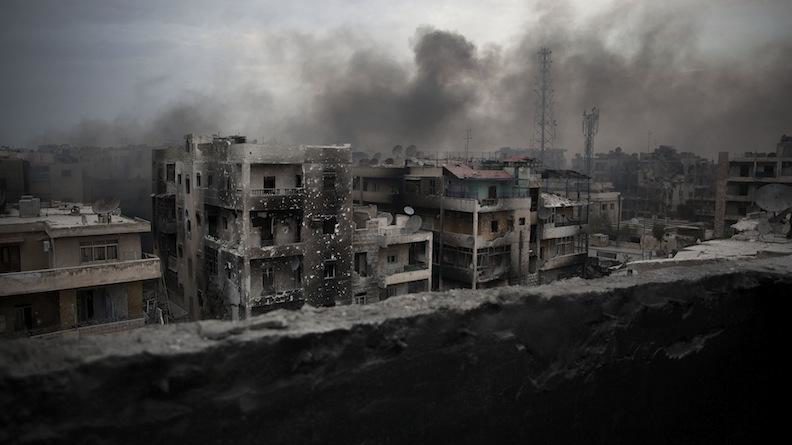Syria’s Fall of Aleppo – What Does it Mean?
The news cycle in the past 24 hours has been anything but stagnate. In Ohio, Governor John Kasich vetoed the controversial heartbeat bill,the United Nations fired Wonder Woman, and in Syria, Assad’s forces have officially taken control of Aleppo.
On Tuesday, Aleppo joined Halabja, Rwanda, and Srebrenica as an event which defined modern evil and will undoubtedly leave an indelible mark in the history books. During the election cycle, Libertarian presidential candidate Gary Johnson made Aleppo a household word when he questioned asked “What is Aleppo?” during an interview after being asked what he would do about the nation’s civil war and refugee crisis. It was one of those moments when half of the world scratched their head in utter disbelief and the other half turned to Google.
Aleppo is the largest city in Syria and has been the epicenter of an ongoing civil war after rebel groups took control. In the months following Johnson’s Aleppo moment, Syrian President Assad’s forces have been gaining ground and on Tuesday, Aleppo fell under full control of the Syrian army and its allied forces.
While Aleppo may have fallen, this only signals the end of the battle and not the war. Fighting and violence will continue shifting into other areas which makes the need for international assistance a nonnegotiable. As the fighting rages on, the chance for international involvement has become very unlikely causing a lot of hand wringing over what to do.
The battle and conquest of Aleppo marked a turning point in the five year civil war, which has ravaged most of Syria and created the largest refugee crisis since World War II. In an emergency Security Council meeting at the United Nations, Secretary-General Ban Ki Moon called on its 15 member council to do “all we can to stop the carnage” and ensure that all the parties in the “wretched” conflict seek an inclusive political resolution.
Sadly, this is not the first time the Security Council has met to discuss the ongoing conflict in Syria. Since September the Council has failed to adopt three different resolutions which would have enabled a humanitarian truce, help civilians evacuate and allow entry for life saving aid.
Ahead of Assad’s forces taking Aleppo, rebel forces agreed to a ceasefire deal. Under the ceasefire agreement, negotiated by Russia and Turkey, civilians were supposed to be evacuated to safety, but the deal collapsed and evacuations were delayed. With the ceasefire deal in tatters and Aleppo under control of Assad’s forces, what happens next is weighing on the minds of the international community. The truth is, their hands are tied.
Assad’s capture of Aleppo is his biggest victory in a vicious six-year civil war, which has killed more than four hundred thousand people and left more than half of Syria’s population, reliant on international aid for daily survival. As a result, Aleppo is now being hailed by France’s U.N. Ambassador, François Delattre as “the worst humanitarian tragedy of the twenty-first century is unfolding before our eyes.”
The fall of Aleppo was not an event that happened quietly behind the closed doors. It happened out in the open, giving the world a front row seat to watch in horror, and now even if the UN Security Council passes a resolution, Assad and his allies have tasted victory with the events in Aleppo and they have proven the use of the military solution adopted years ago. This short-sided and destructive view will only continue to hinder the emergence of a political solution.
There is no doubt, Syria’s future under Assad’s control is bleak and the fall of Aleppo is both a cultural and humanitarian disaster that happened under the watch of the world. It is easy for those not caught up in the fighting to turn the channel and ignore the grim reality of Syria’s population. However, if the world has learned anything from Aleppo, the Middle East is incapable of solving its own problems without the assistance of the international community.

